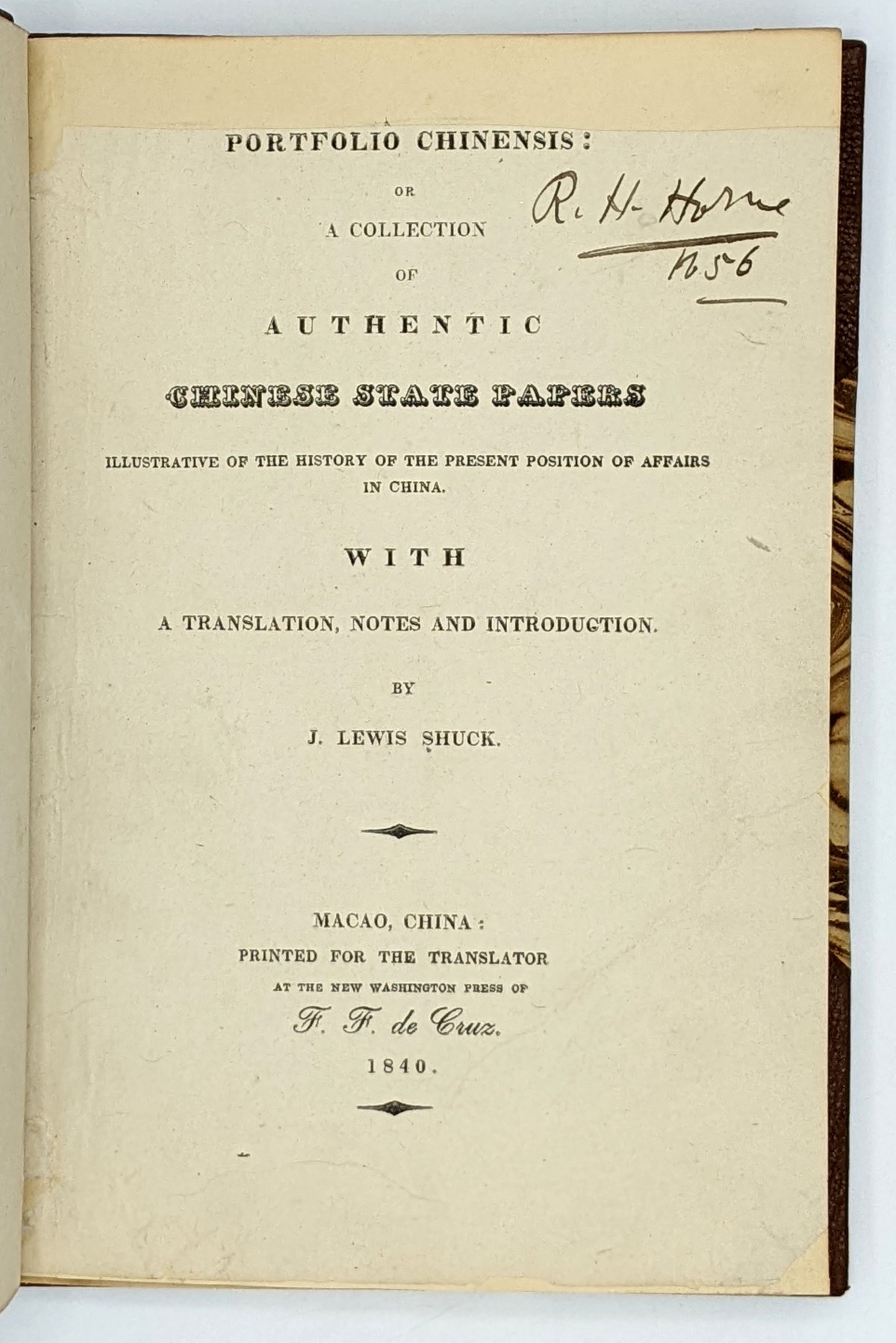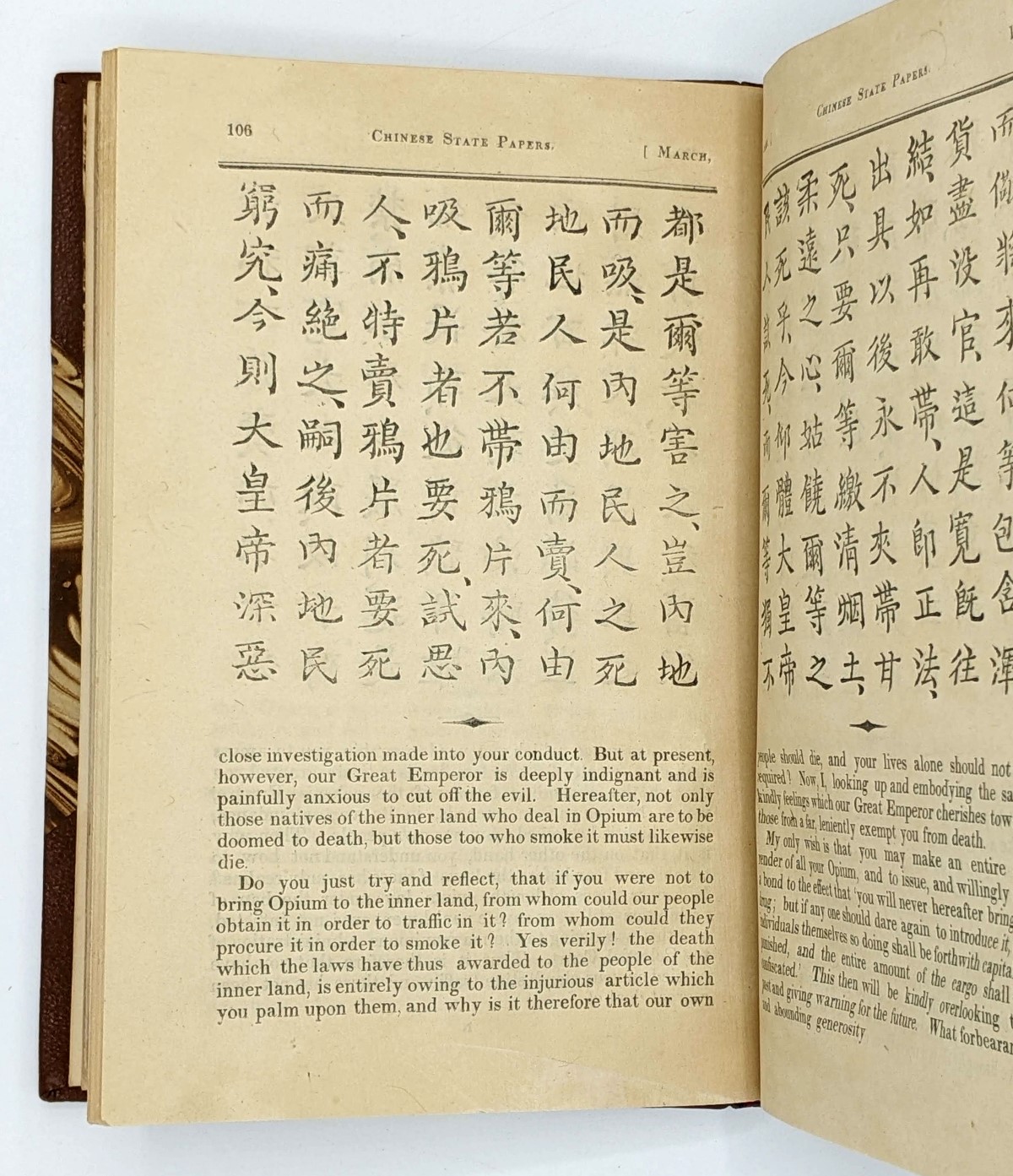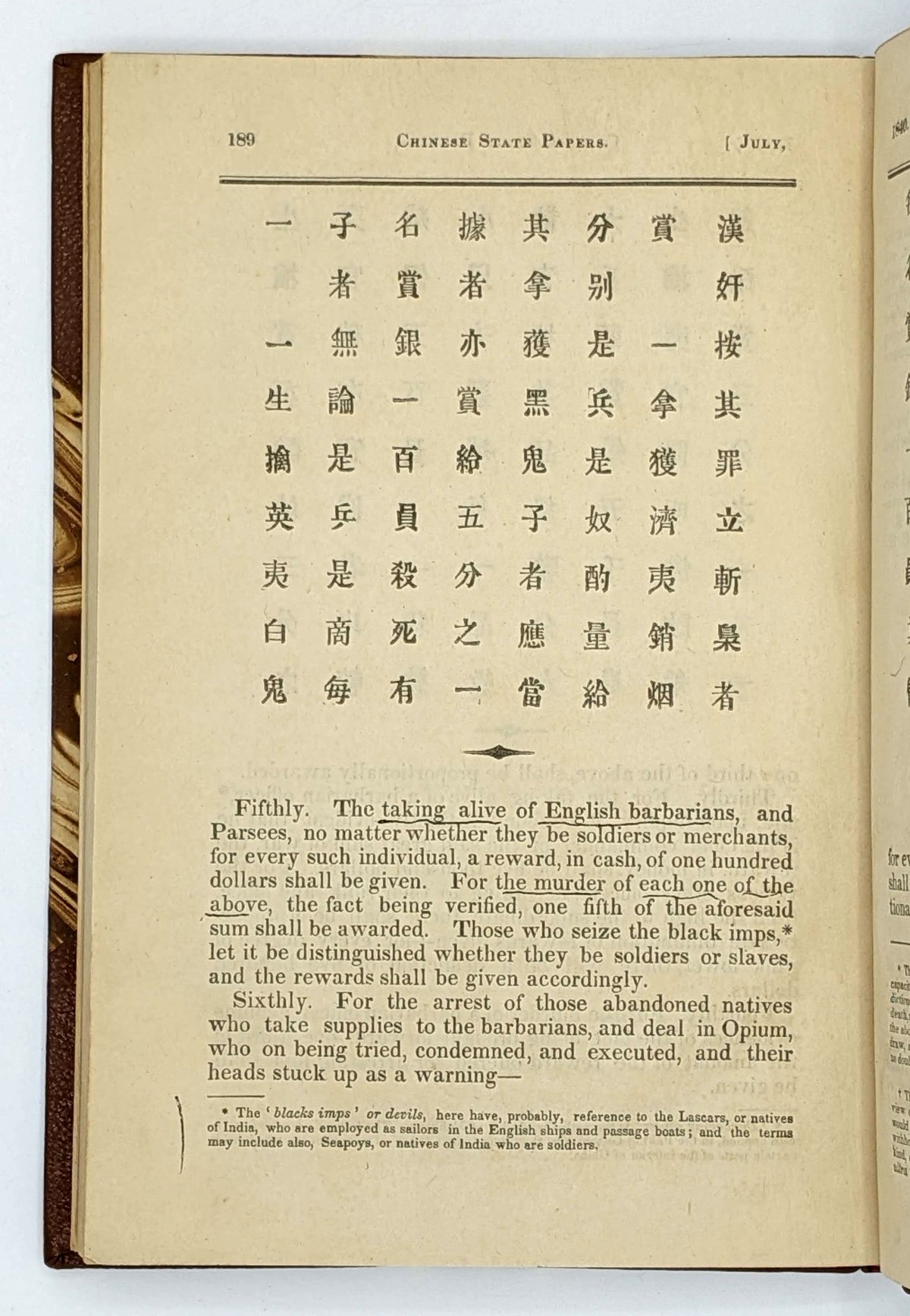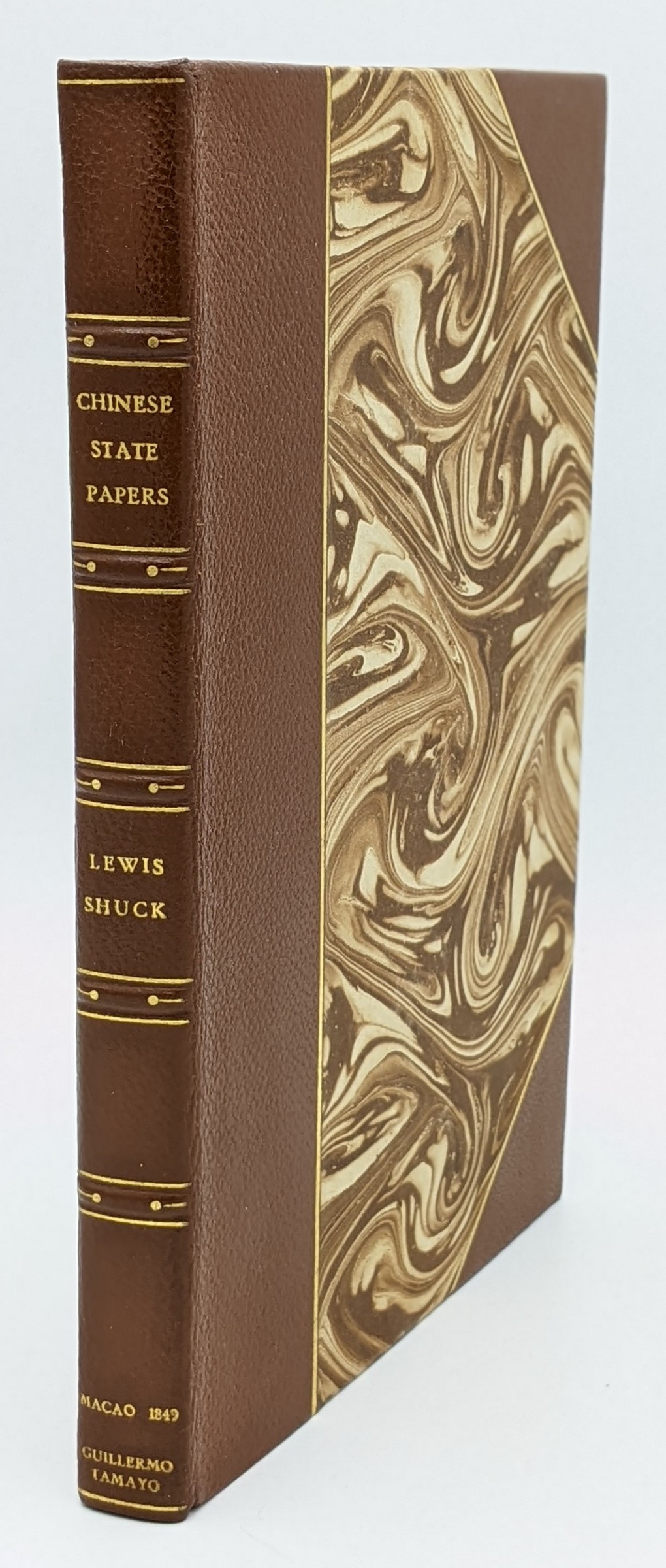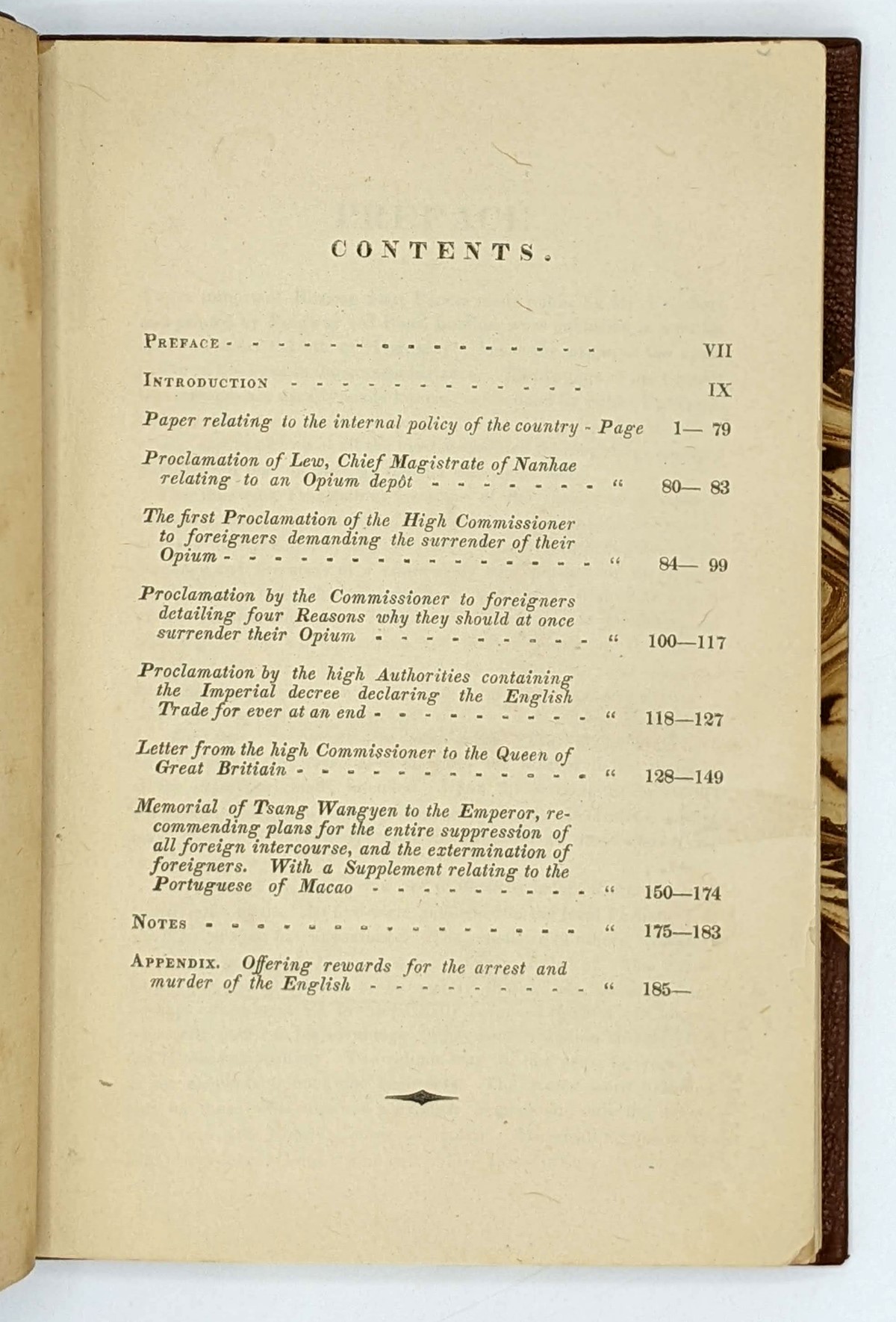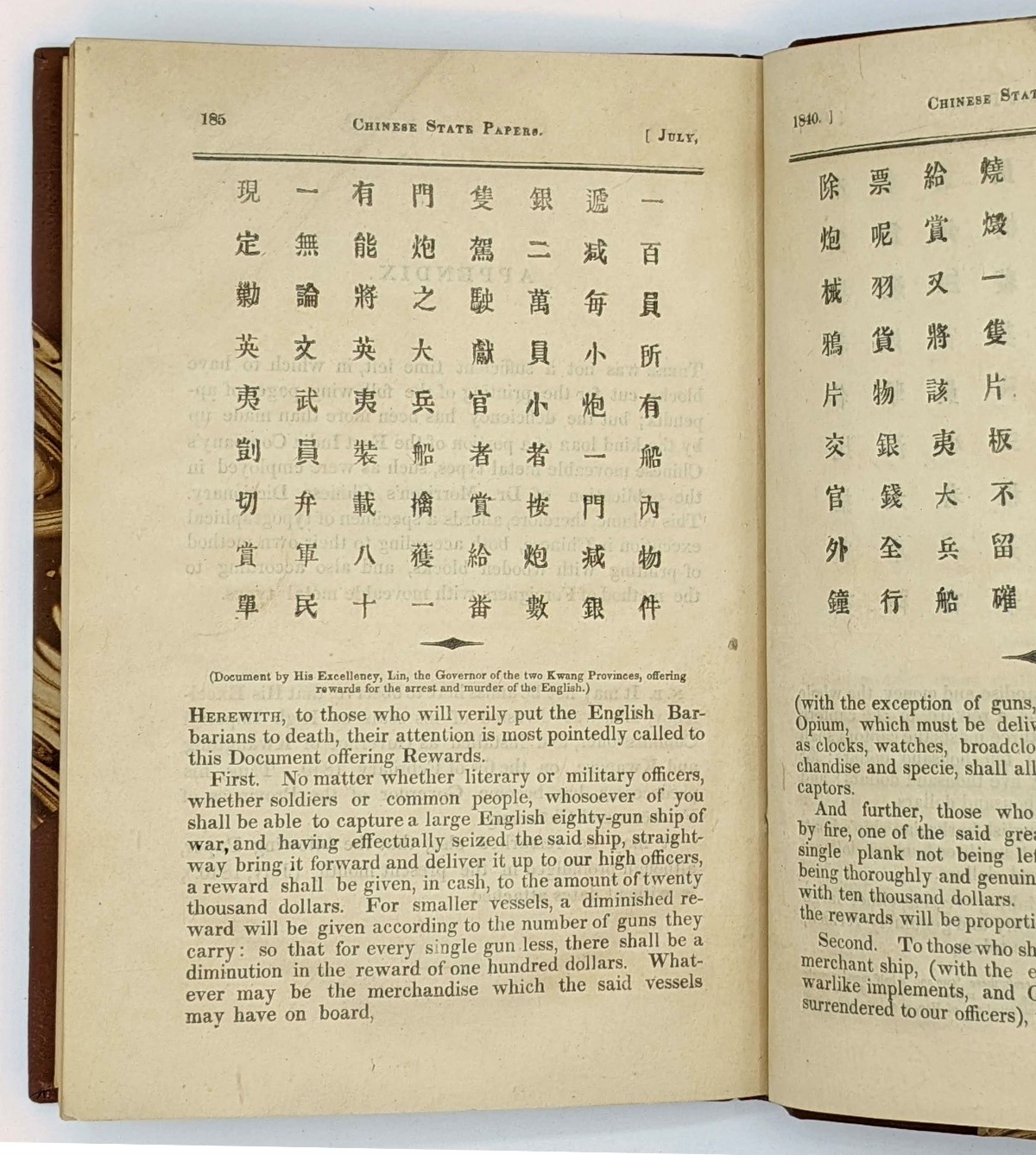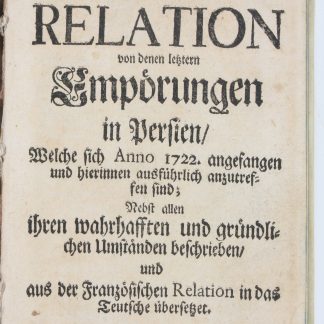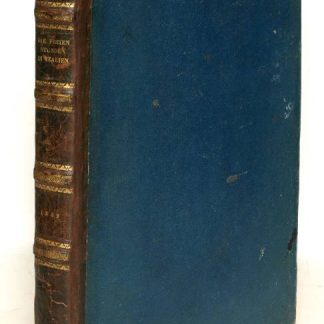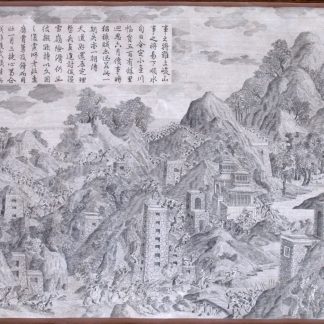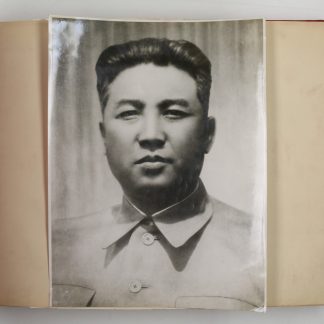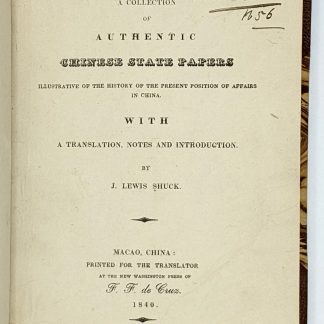Prohibitory regulations against opium, printed in Macao in 1840 - No copy at auction in the last 30 years
Portfolio Chinensis: or a Collection of Authentic Chinese State Papers Illustrative of the History of the Present Position of Affairs in China. With a Translation, Notes and Introduction.
4to (21 x 14 cm). XVI pp. (including half-title), 183 pp, (1), 184-191 pp. Bound in handsome modern half brown morocco with gilt titles on spine. Half-title and title-page strengthened, otherwise an excellent and very well-preserved copy. With a handful of scholarly, penciled marginalia including alternative Chinese characters. Ownership inscription of Richard Henry Horne (1802-1884) on title-page (sometime collaborator with Charles Dickens on an article concerning the Chinese exhibit at Crystal Palace in 1851).
€ 15.000,00
Only edition of this remarkable work, uniquely preserving the mostly handwritten edicts promulgated by Commissioner Lin in his attempts to combat the opium use plaguing China in the first decades of the 19th century. The American missionary responsible for collecting and translating these edicts, Jehu Lewis Shuck (1812-63), distanced himself from the pernicious effects of the British-led opium trade, but seems to have composed the present work as a demonstration of the extreme measures the Chinese were prepared to execute in order to rid their country of the drug. Two years after the publication of Shuck's work, the collection of small fishing villages known as Hong Kong Island would be ceded to the British as part of the settlement of the First Opium War (1839-42), with the importation and sale of opium sadly continuing unabated.
The documents chronicle the various efforts by the Chinese to suppress the trade: by ordering the destruction of an opium depot; by demanding the surrender of foreigner's opium stocks; and finally, by "offering rewards for the arrest and murder of the English": "The taking alive of English barbarians ... no matter they be soldiers or merchants, for every such individual, a reward, in cash, of one hundred dollars shall be given. For the murder of each one of the above, the fact being verified, one fifth of the aforesaid sum shall be awarded." Greater awards (up to twenty thousand dollars) are offered for English officers and ships.
Shuck notes that in preparing the present work, "the paper is Chinese, and the best quality to be procured"; the Appendix (pp. 185-191) was apparently printed in July 1840 using the East India Company's moveable Chinese type. Hong Kong's first printing press was established only in 1844; like all early Macau and Hong Kong imprints, this work was printed in a limited number of copies and is rarely encountered in the trade. The last copy we have traced at auction was sold at Sotheby's in 1990.
Cordier 1905-6 (q.v.). Lust 478.

